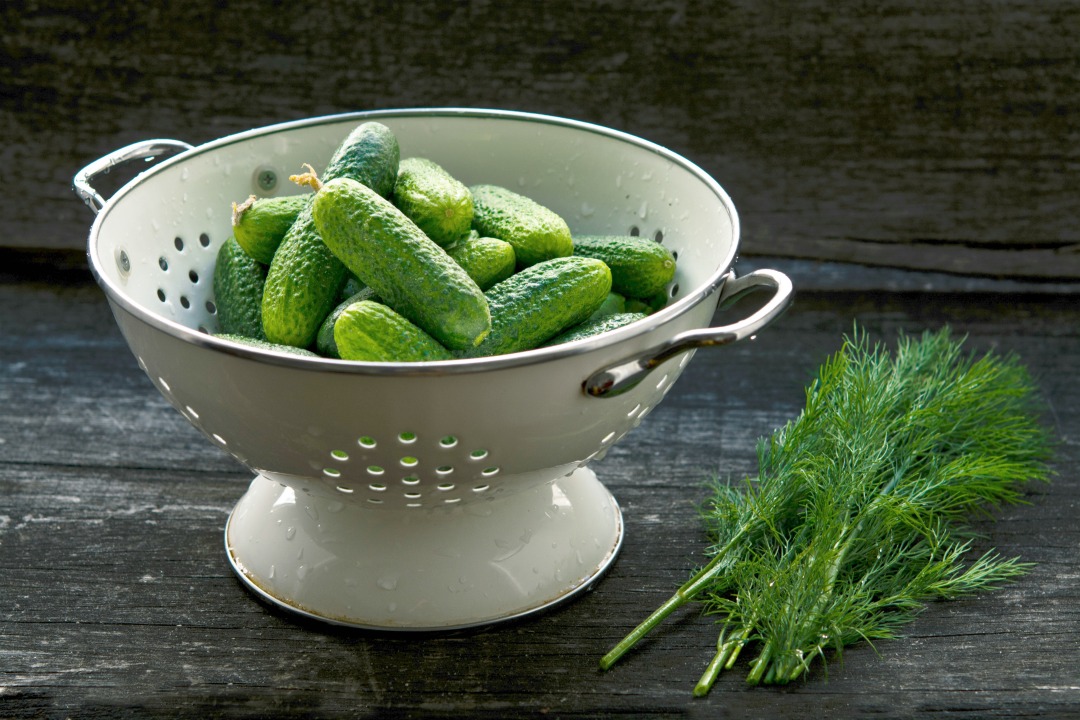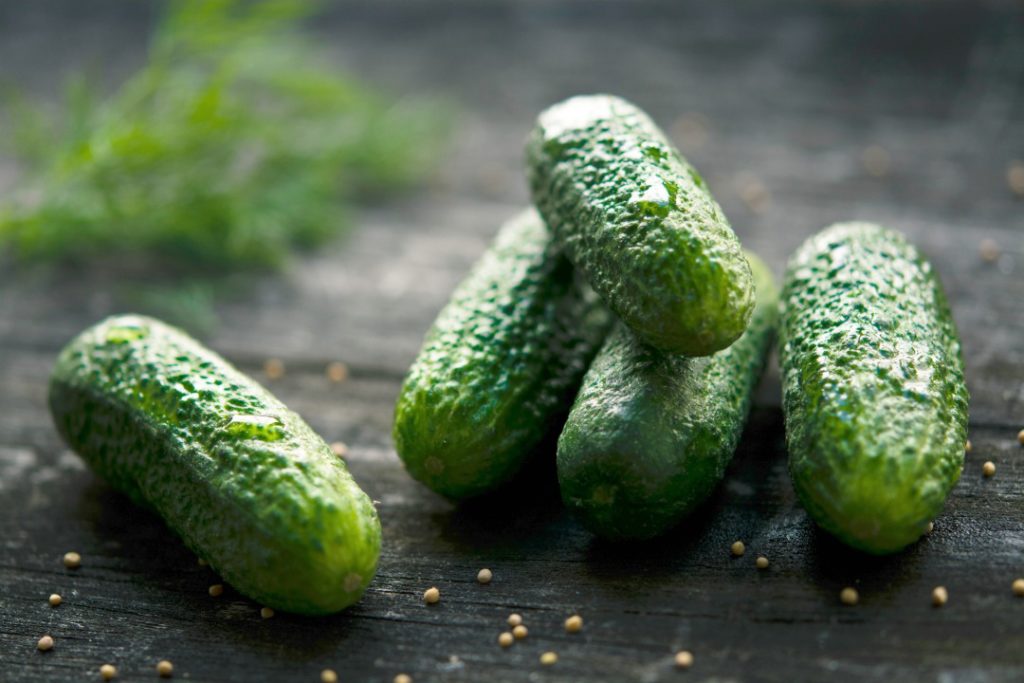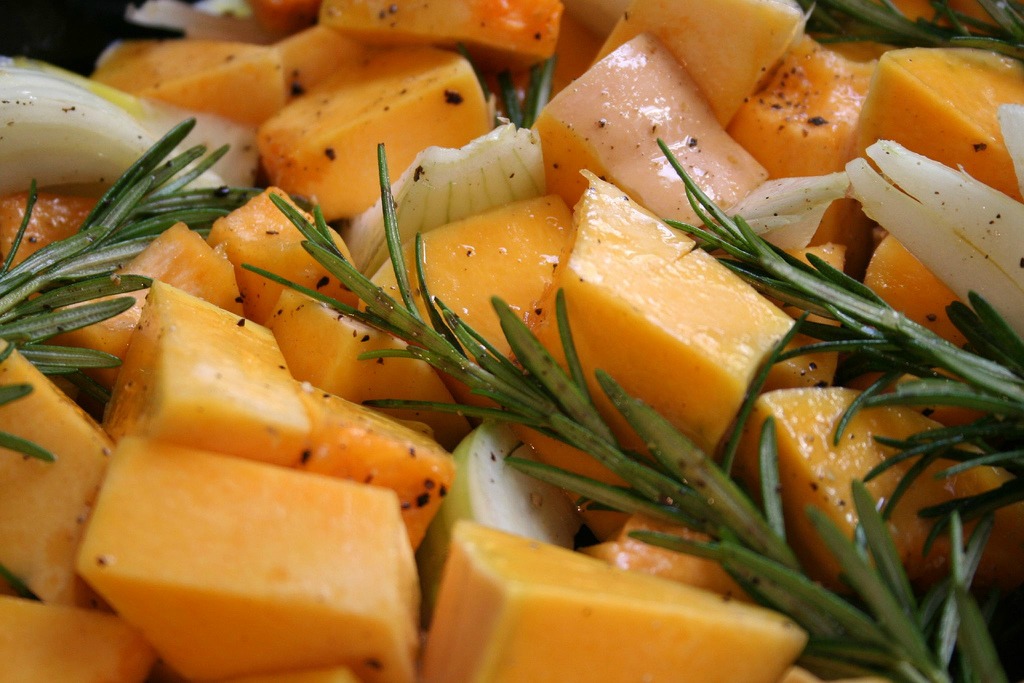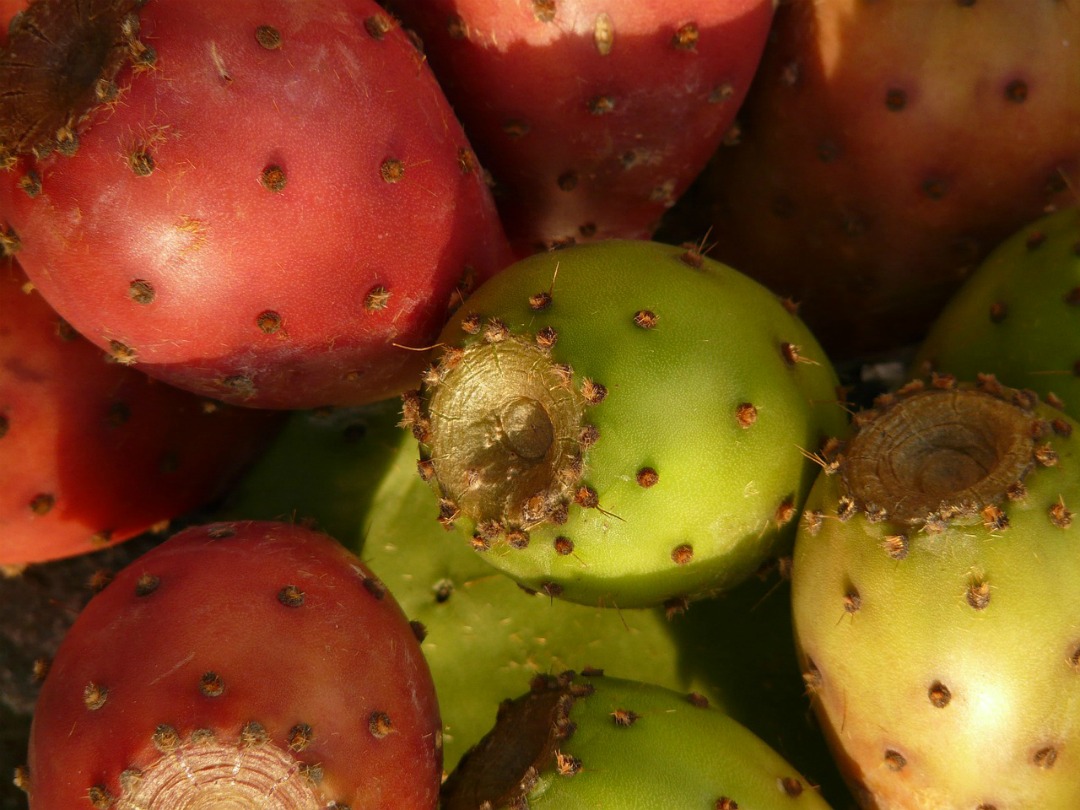Mike and I were doing our usual Costco run last weekend when I saw bags of baby cucumbers in the cold room. This reminded me of three things:
- I love dill pickles.
- It’s summer, which means I have time to think about making my own dill pickles.
- It’s really, really easy to make pickles.
My mom did a lot of canning and preserving when I was a kid (mostly, I think, because my dad kept a very large garden and she had to do something to keep all that food from spoiling.) It always seemed like a complicated process filled with lots of boiling water and very hot jars threatening to burn us. Occasionally there would be a bit of excitement when a canning jar cracked or exploded. Those memories kept me from thinking of canning as something I wanted to try.
Then I learned that canning pickles doesn’t have to be the least bit complicated. This is a small-batch recipe for refrigerator pickles that will produce two pint-size jars. No boiling water, no explosions. Just crunchy, delicious pickles, after about 48 hours of letting them brine.
To get the job done, you need two pint jars (with lids) and five ingredients: cucumbers, dill, fresh garlic, white vinegar, and pickling salt.
I used baby cucumbers–sometimes called pickling cucumbers–but you can also use their full-size counterparts and cut them into spears or chips. You’ll need about 1.5 pounds of whichever cucumbers you choose. Fresh dill is available in the produce section of most large grocery stores, though dill seed (sold dry, in the spice aisle) will also work. You will need to buy pickling salt, since regular table salt contains additives that can make your pickles turn funky colors. Pickling salt is also very fine, which means it dissolves more thoroughly in the brine. Sea salt will work, in a pinch, but you’ll have to taste test and adjust for the larger size of its granules.
If you have wide-mouthed jars, they’re best for this project–they make it easier to pack in the cucumbers and allow you to fit in a few more than you’d be able to wedge into traditional jars. Be sure to pack the cucumbers tightly, so they don’t float up out of the brine.
If you’re a fan of spicy dill pickles, you can add a few flakes of crushed red pepper to your jars (or whole red peppers, if you like them super spicy.) Many people add whole peppercorns as well. I’ve done that in the past, but I prefer the clean, fresh taste of vinegar and dill.
These are your pickles, though. Flavor them any way you like. That’s the beauty of making your own.
Homemade Dill Pickles
1.5 pounds cucumbers, whole or sliced (depending on the variety you choose)
4 sprigs fresh dill, or 2 teaspoons dried dill seed
4 whole cloves of garlic, peeled and smashed
1 cup white vinegar
1 cup water
1 1/2 teaspoons pickling salt
Start with clean jars and lids–running them through the dishwasher is a good idea, if they’ve been in storage. Divide the dill and garlic between the jars. (If you’re going to add rep pepper flakes or anything other spices, now’s the time.) Pack the cucumbers into the jars, fitting them in as tightly as possible. Trim the ends off any cucumber that extends more than half an inch below the upper lip of the jar.
Leave the jars sitting on the counter while you make your brine: combine the vinegar, water, and salt in a saucepan. Bring the mixture to a full boil, then turn off the heat. If you have a funnel, use it to help you pour the brine around the pickles in the jars. A spouted glass measuring cup can also be used for this purpose. Or, just set the jars in your sink and pour the brine over them. (You likely won’t need all of it, so spilling a little is no great tragedy.) Fill the jars to within a half inch of the top.
Screw the lids on tightly while the brine is still hot. Let the jars cool to room temperature, then set them in the refrigerator. Your pickles need at least 48 hours to absorb flavors–and the longer you can let them sit, the better.
Unopened jars will last about three weeks in your refrigerator. Once you’ve opened them, make sure to eat your pickles within a week. (Trust me when I say that this will not be a problem.)






No Comments